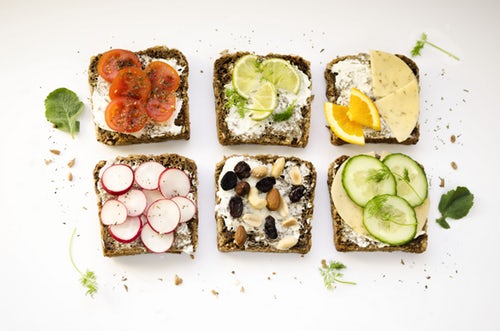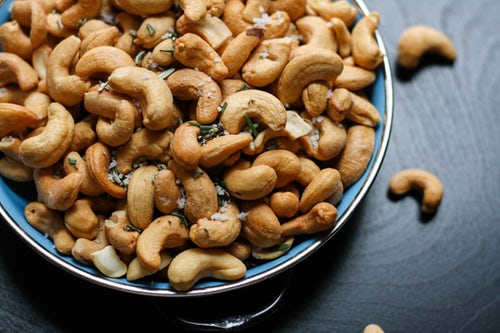It shouldn’t come as a surprise that the answer to the question “can nutrition help depression?” is a resounding yes. There’s no avoiding the fact that what you eat plays a huge role in how your brain functions and therefore in what you think, feel and do. Diet is an undeniably important factor that either enhances or limits your wellbeing, quality of life and capabilities and yes, this includes profoundly debilitating experiences such as depression.
Many nutrients, foods and types of eating patterns have been studied in relation to their effects on mental health1-7 and there is no lack of claims about how to eat for brain health. Which is great but also not so great because it means confusion and following the wrong advice could literally be preventing you from ever really getting started on what, if done correctly, could very well lead to one of the most meaningful changes to your wellbeing and experience of life.
If you’ve experienced or are currently experiencing depression, you’ll know there’s nothing quite like it and for me to attempt to capture the pain and inner turmoil in a few words here would be ludicrous and beyond the purpose of this post. Therefore, rather than spend the post trying I am going to instead use the knowledge I have as a dietitian and self-proclaimed happiness expert to provide you with information on the top nutrients for brain health that have been implicated in preventing, alleviating and potentially curing depression because to me that’s pretty damn useful!
By the end of this post you’ll be able to identify where nutrition may be holding you back from experiencing the passion and joy you desire, the top 3 nutrients scientifically recognized to impact the debilitating symptoms of depression and what foods these key nutrients are found in so you can ensure you are getting your daily intake and supporting your best mental health.
Energy (Carbs, Protein & Fats)

The predominant dietary advice floating around today is without question focused on what you should cut out or eliminate from your diet in order to gain health. However, if you take just a moment to think about it, this is actually largely the opposite of what makes sense in terms of how humans (and all heterotrophic organisms) function. We literally run off food!
As a human your body uses the breakdown components of the food you eat to create everything within your body including the hormones and chemicals responsible for making you feel good and above that for liberating the energy to be happy and passionately engaged in your life. Which means in this post you’re not going to find any advice to cut this or cut that because that’s not where the answer is. Sub-optimal brain health is associated with numerous disorders of mental health including depression and can you guess what the main thing that gives us great brain health is? Yep, you got it energy.
First and foremost, before any vitamin, mineral, antioxidant, phytonutrient or other food component can be of help your brains need for energy must be met. Your brain is hugely energy demanding and chews through 25% of your daily energy intake which means that meeting your brains needs let alone optimising function (to experience passion, enjoyment, a great libido, productivity, focus, presence and the ability to be completely engaged in your life) requires a surprising amount of food. If you’re not eating enough energy to fuel your highly metabolically active brain cells you have no hope of feeling good. There is an abundance of studies which link calorie restricted diets or being underweight with reduced brain function and increased incidence of depression1,2,8-16.
So, where do you get this energy to keep your brain firing and you feeling happy and productive? From the 3 macros, that is carbs, fat and protein. In particular your brain likes carbs because these are broken down directly into glucose which is your brains preferred fuel source. At rest your brain gets half of its energy from dietary carbohydrates and 80% of this is used for energy production alone. Which means your cognitive ability is greatly affected by short term variations in glucose (sugar) availability and dips in blood glucose are associated with confusion and depression.
What Foods Are Great Sources of Energy?
Essentially any meal or snack that is based off the 3 macros is going to supply your brain and body with energy. Eating foods as a mix of the macros in the same meal is beneficial to digestion and absorption, keeping your blood glucose levels (BGLs) stable, maintaining concentration and preventing mood disturbances because the different macronutrients are digested and absorbed at different rates.
Carbs
- bread
- pasta
- rice
- quinoa
- potatoes, sweet potato & corn
- fruits
- couscous
- oats
- breakfast cereals

Protein
- fish
- meat
- eggs
- chicken
- nuts
- legumes (for example red kidney beans and lentils)
- dairy (milk, cheese, yoghurt)

Fats
- avocado
- cream
- nuts
- seeds
- oil
- butter
- coconut cream

Now, you understand the importance of energy to healthy brain function let’s take a look at 3 specific nutrients that substantial evidence indicates play important roles in helping prevent, improve or even cure depression – folate, zinc and omega 3 fats and what foods you can eat to ensure you’re getting them.
Folate
Low levels of folate have been found in depressed patients17-19 and the link to low folate and depression may be in part due to folate playing a role in the metabolism of serotonin one of the hormones responsible for feelings of happiness20,21. A combined analysis of 11 studies showed that those with low blood folate levels or low dietary intake of folate were more likely to experience depressive symptoms compared to those with a high folate intake22. Furthermore, administration of folate has been associated with early recovery from depression23-27 and various epidemiological studies have shown folate to be protective against depression22,28-37.
What Foods Are High in Folate?
- Beef liver
- Eggs
- Legumes
- Avocado
- Green leafy vegetables (including kale and asparagus)
- Fruits (including papaya, banana and citrus fruit)

Zinc
Many studies have found low levels of zinc in the blood of depressed patients38-51, zinc deficiency has been linked to symptoms of major depressive disorder38,41-45,52-59 and several case-control trails have shown zinc supplementation to have an antidepressant effect in depressed patients53,60-66 (that’s pretty cool!). Interestingly when compared with your other organs your brain contains the highest concentration of zinc and it seems to be well supported that a zinc deficiency can lead to changes in the functioning of your central nervous system (CNS) all of which means meeting your zinc needs seems pretty important to your brain functioning and mood and you meet your zinc needs through what you eat.
What Foods Are High in Zinc?
- Meat
- Oysters
- Nuts and seeds
- Legumes
- Dairy
- Eggs
- Wholegrains (including brown rice, quinoa, wholegrain bread and pasta)

Omega 3 Fats
Not technically a micronutrient as fats are one of the macros however, there’s some pretty compelling evidence that omega 3 fats in particular convey brain and health benefits beyond their supply of energy. Which means I’m including omega 3 fats as a third nutrient to pay particular attention to because there’s some pretty compelling evidence to do so including studies showing a deficiency of omega 3 fats and low concentration of omega 3 fats within body fat stores are associated with increased risk of depression67-71 and eating foods rich in omega 3 including a typical intake of fatty fish can have a beneficial effect on reducing the severity of depression69,72-75. Similarly to folate it appears that omega 3 fats have an impact on the metabolism of the hormone serotonin “the happiness hormone” which consequently greatly influences your mood, sleep and pleasurable behaviours76,77. On top of this there is the fact that almost 60% of your brain is made from fat which is a pretty clear indication as to why low fat diets would have adverse effects on your happiness!
What Foods Are High in Omega 3 Fats?
- Oily fish (including salmon, mackerel, swordfish and tuna)
- Nuts and seeds (including walnuts, chia seeds, flaxseeds)
- Plant oils (including flaxseed, soybean and canola oil)

Take Home Messages

To say there is one magic nutrient which alone will prevent you from ever experiencing depression is far too narrow a view. As a human being you are a complicated piece of work. However, it does not need to be so complicated that it is overwhelming and you do nothing which is why it is my hope that this post goes a way towards clearing up some simple and most importantly useful things you can do to support your best brain function and lessen your likelihood of experiencing depression because no one deserves that stuff going on in their brain.
While we certainly don’t know everything there is to know about nutrition and how to eat for optimal health we know enough to know that it is important and we know enough to know when it comes to depression meeting your brain and body’s energy needs is queen (or king). Which is why optimal health including brain function will never be found in cutting out foods (yes, including sugar, salt, gluten, fats, carbs, chocolate, coffee, fun) but in what you can add in. What you eat has tremendous ability to convey great health in particular it seems to be that the nutrients folate, zinc and omega 3 fats are worth paying extra attention to in order to boost your brain function, mood and amazingly prevent, lessen or cure the horrible experience of depression.
If you have been diagnosed with or suspect you may have depression or experience depressive episodes please, please, please consider working with a nutrition professional (aka a dietitian). Too often nutrition is left out of the treatment mix in favour of medications or psychiatric treatment and this is an incredible shame because in the same way that no amount of software updating will fix a faulty hard drive no amount of therapy can fix a nutritional imbalance. Sometimes it really and truly is as simple as eating to support the life you want. Which is why I suggest giving seeing a dietitian a go because imagine if it worked… it just may change the course of the rest of your life…
P.s

Just to finish I’d like to give you a quick insight and appreciation into the numerous effects what you eat has on your mental health and how optimal mental health goes far beyond sprinkling a little more folate, zinc or omega 3 here and there throughout your day… vitamin B1is needed as part of the metabolic pathway to release energy from the foods you eat, vitamin B6 has been shown to be beneficial for treatment of premenstrual depression, vitamin B12 is vital for the synthesis of neurotransmitters, the nerve ending in your brain contain the second highest concentration of vitamin C of any part of your body, vitamin D prevents neurodegradation (breakdown of brain cells), the various forms of vitamin E confer membrane protection, iron is crucial to ensuring your brain receives an adequate oxygen supply which is absolutely central to energy production, magnesium, coper and iodine are all involved in the metabolic processes of your brain cells, amino acids from the breakdown of dietary protein are involved in the production of serotonin and manganese as well as many other micronutrients and phytochemicals acts as antioxidants and protect against free radical damage. On top of all this your gut is the primary site of serotonin production (over 90% of your serotonin is synthesised in your gut!78) which is made by a particular type of intestinal cell as well as some of your intestinal bacteria from the amino acid tryptophan79 which itself is released from the protein you eat. Studies which have investigated the effects of depleted tryptophan show increased depressive symptoms79,80 and gastrointestinal problems are common amongst those suffering with depression81 including functional gastrointestinal disorders such as irritable bowel syndrome (IBS)82,83. As well as this good gut function is needed for proper immune function84 and the synthesis of many vitamins85 both of which are also necessary for brain health. Which means supporting the overall health of your digestive system through what you eat is uber important to the health of your brain and feeling good.
Therefore, to me it’s a no brainer (pun intended) that investing a little of your time and money into learning how you can eat to best support your mental health is beyond worth it. In any case it’s you who’s got to live with that brain for the rest of your life (not me, mine’s fab) and you can’t undervalue the importance of that!
With my whole heart I trust you found this information useful and inspiring

Become Great. Live Great.
Bonnie.
Reference
- Dauncey MJ. Symposium on ‘Nutrition, genes and health: current knowledge and future directions’ Recent advances in nutrition, genes and brain health. Proceedings of the National Nutrition Society. 2012. 71; 581-591.
- Dauncey MJ. New insights into nutrition and cognitive neuroscience. Proc Nutr Sci. 2009. 68; 408–415.
- Benton D. The influence of dietary status on the cognitive performance of children. Mol Nutr Food Res. 2010. 54; 457-470.
- Gu Y and Scarmeas N. Dietary patterns in Alzheimer’s disease and cognitive aging. Curr Alzheimer Res. 2011. 8; 510-519.
- Innis SM. Metabolic programming of long-term outcomes due to fatty acid nutrition in early life. Maternal Child Nutr. 2011. 7; 112-123.
- Kennedy DO and Wightman EL. Herbal extracts and phytochemicals: plant secondary metabolites and the enhancement of human brain function. Adv Nutr. 2011. 2; 32-50.
- Morris MC. Nutritional determinants of cognitive aging and dementia. Proc Nutr Soc. 2012. 71; 1-13.
- Sabia S, Kivimaki M, Shipley MJ et al. Body mass index over the adult life course and cognition in late midlife: the Whiehall !! cohort study. Am J Clin Nutr. 2009. 89; 601-607.
- Geoffroy, M-C; Li, L; Power, C. Depressive symptoms and body mass index: co-morbidity and direction of association in a British birth cohort followed over 50 years. Psychological Medicine; Cambridge. 2014.44;(12); 2641-52.
- Atlantis E, Ball K. Association between weight perception and psychological distress. International Journal of Obesity. 2007. 32; 715–721.
- de Wit L, van Straten A, van Herten M, Penninx B, Cuijpers P. Depression and body mass index, a u-shaped association. BMC Public Health. 2009. 9; 14.
- Zhao G, Ford ES, Dhingra S, Li C, Strine TW, Mokdad AH. Depression and anxiety among US adults: associations with body mass index. International Journal of Obesity. 2009. 33; 257–266.
- Gunnell D, Thomas K (2011). Body weight, obesity, and suicide across the life course. In International Handbook of Suicide Prevention: Research, Policy and Practice (ed. R. C. O’Connor, S. Platt and J. Gordon), pp. 275–287. Wiley-Blackwell: Hoboken, NJ.
- Moussavi, S., Chatterji, S., Verdes, E., Tandon, A., Patel, V., & Ustun, B. Depression, chronic diseases, and decrements in health: Results from the World Health Surveys. Lancet. 2007. 370; 851–858.
- Bruffaerts, R., Demyttenaere, K., Vilagut, G., Martinez, M., Bonnewyn, A., De Graaf, R., et al. The relation between body mass index, mental health, and functional disability: A European population perspective. Canadian Journal of Psychiatry. 2008. 53; 679–688.
- Keys A, Brozek J, Henschel A, Mickelsen O. Taylor HO. The Biology of Human Starvation. Minneapolis, Minn: University of Minnesota Press; 1950.
- Carney MW. Serum folate values in 423 psychiatric patients. Br Med J. 1967. 4; 512–516.
- Reynolds EH, Preece JM, Bailey J, Coppen A.. Folate deficiency in depressive illness. Br J Psychiatry. 1970. 117; 287–292.
- Almeida, Osvaldo P; Ford, Andrew H; Flicker, Leon. Systematic review and meta-analysis of randomized placebo-controlled trials of folate and vitamin B12 for depression. International Psychogeriatrics; Cambridge. 2015.27:(5); 727-737.
- Bottiglieri T. Homocysteine and folate metabolism in depression. Prog Neuropsychopharmacol Biol Psychiatry. 2005. 29; 1103–1112.
- Reynolds E. Vitamin B12, folic acid, and the nervous system. Lancet Neurol. 2006. 5; 949–960.
- Gilbody S, Lightfoot T, Sheldon T. Is low folate a risk factor for depression? A meta-analysis and exploration of heterogeneity. J Epidemiol Community Health. 2007. 61; 631–637.
- Fava M, Borus JS, Alpert JE, Nierenberg AA, Rosenbaum JF, Bottiglieri T. Folate, vitamin B12, and homocysteine in major depressive disorder. Am J Psychiatry. 1997. 154; 426–428.
- Taylor MJ, Carney S, Geddes J, Goodwin G. Folate for depressive disorders. Cochrane Database Syst Rev. 2003. CD003390.
- Godfrey, P. S. et al. Enhancement of recovery from psychiatric illness by methylfolate. Lancet. 1990. 336; 392–395.
- Coppen A and Bailey J. Enhancement of the antidepressant action of fluoxetine by folic acid: a randomised, placebo controlled trial. Journal of Affective Disorders. 2000. 60; 121–130.
- Coppen A, Chaudhry S and Swade C. Folic acid enhances lithium prophylaxis. Journal of Affective Disorders. 1986. 10; 9–13.
- Tolmunen T, Voutilainen S, Hintikka J, Rissanen T, Tanskanen A, Viinamaki H et al. Dietary folate and depressive symptoms are associated in middle-aged Finnish men. J Nutr. 2003. 133; 3233–3236.
- Tolmunen T, Hintikka J, Ruusunen A, Voutilainen S, Tanskanen A, Valkonen VP et al. Dietary folate and the risk of depression in Finnish middle-aged men. A prospective follow-up study. Psychother Psychosom. 2004. 73; 334–339.
- Sanchez-Villegas A, Henriquez P, Bes-Rastrollo M, Doreste J. Mediterranean diet and depression. Public Health Nutr. 2006. 9; 1104–1109.
- Murakami K, Mizoue T, Sasaki S, Ohta M, Sato M, Matsushita Y et al. Dietary intake of folate, other B vitamins, and omega-3 polyunsaturated fatty acids in relation to depressive symptoms in Japanese adults. Nutrition. 2008. 24; 140–147.
- Bjelland I, Tell GS, Vollset SE, Refsum H, Ueland PM. Folate, vitamin B12, homocysteine, and the MTHFR 677C-4T polymorphism in anxiety and depression: the Hordaland Homocysteine Study. Arch Gen Psychiatry. 2003. 60; 618–626.
- Morris MS, Fava M, Jacques PF, Selhub J, Rosenberg IH. Depression and folate status in the US population. Psychother Psychosom. 2003. 72; 80–87.
- Ramos MI, Allen LH, Haan MN, Green R, Miller JW. Plasma folate concentrations are associated with depressive symptoms in elderly Latina women despite folic acid fortification. Am J Clin Nutr. 2004. 80; 1024–1028.
- Sanchez-Villegas A, Henriquez P, Bes-Rastrollo M, Doreste J. Mediterranean diet and depression. Public Health Nutr. 2006. 9; 1104–1109.
- Dimopoulos N, Piperi C, Salonicioti A, Psarra V, Gazi F, Papadimitriou A et al. Correlation of folate, vitamin B12 and homocysteine plasma levels with depression in an elderly Greek population. Clin Biochem. 2007. 40; 604–608.
- Kim JM, Stewart R, Kim SW, Yang SJ, Shin IS, Yoon JS. Predictive value of folate, vitamin B12 and homocysteine levels in late-life depression. Br J Psychiatry. 2008. 192; 268–274.
- Maes M, D’Haese PC, Scharpe S, D’Hondt P, Cosyns P, De Broe E. Hipozincemia in depression. J Affect Disord. 1994. 31; 135–140.
- Maes M, Vandoolaeghe E, Neels H, Demedts P, Wauters A, Meltzer HY, Altamura C,DesnyderR. Lower serum zinc in major depression is a sensitive marker of treatment resistance and of the immune, inflammatory response in that illness. Biol Psychiatry. 1997. 42; 349–358.
- Maes M, DeVosN, Demedts P, Wauters A, Neels H. Lower serum zinc in major depression in relation to changes in serum acute phase proteins. J Affect Disord. 1999. 56; 189–19
- Russo AJ. Analysis of plasma zinc and copper concenntration, and perceived symptoms, in individuals with depression, post zinc and antioxidant therapy. Nutr Metab Insights. 2011. 17; 19–27.
- McLoughlin IJ, Hodge SJ. Zinc in depressive disorder. Acta Psychiatr Scand. 1990. 82; 451–45.
- Siwek M, Dudek D, Schlegel-Zawadzka M, Morawska A, Piekoszewski W, Opoka W, Zieba A, Pilc A, Popik P, Nowak G. Serumzinc. levels in depressed patients during zinc supplementation of imipramine treatment. J Affect Disord. 2010. 126; 447–452.
- Schlegel-Zawadzka M, Zieba A, Dudek D, Krosniak M, Szymaczek M, Nowak G. 2000. Effect of depression and of antidepressant therapy on serum zinc levels—a preliminary clinical study. In: Roussel AM, Anderson RA, Favrier AE (eds) the: Trace elements in man and animals 10. Kluwer Academic Plenum Press, New York, pp. 607–610.
- Siwek M, Szewczyk B, Dudek D, Styczeń K, Sowa-Kućma M, Młyniec K, Siwek A, Witkowski L, Pochwat B, Nowak G. Zinc as a marker of affective disorders. Pharmacol Rep. 2013. 65; 1512–1518.
- Roozbeh J, Sharifian M, Ghanizadeh A. Association of Zn deficiency and depression in the patients with end-stage renal disease in hemodialysis. J Ren Nutr. 2011. 21; 184–187.
- Irmisch G, Schlaefke D, Richter J. Zinc and fatty acids in depression. Neurochem Res. 2010. 35; 1376–1383.
- Amani R, Saeidi S, Nazari Z, Nematpour S. Correlation between dietary zinc intakes and its serum levels with depression scales in young, female students. Biol Trace Elem Res. 2010. 137; 150–158.
- Salimi S, Kianpoor M, Abassi MR, Abdani M, Moghaddam ES. Lower total serum protein, albumin and zin in depression in an Iranian population. J Med Sci. 2008. 8:587–590.
- Wójcik J, Dudek D, Schlegel-Zawadzka M. Antepartum, postpartum depressive symptoms and serum Zn and Mg levels. Pharmacol Rep. 2006. 58:571–576.
- Little KY, Castellanos X, Humphries LL, Austin J. Altered Zn metabolism in mood disorder patients. Biol Psychiatry. 1989. 26:646–648.
- Stycze, Krzysztof; Sowa-kucma, Magdalena; Siwek, Marcin; Dudek, Dominika; Reczyski, Witold; et al. The serum zinc concentration as a potential biological marker in patients with major depressive disorder. Metabolic Brain Disease; New York. 2017. 32, 1; 97-103.
- Szewczyk B, Kubera M, Nowak G. The role of zinc in neurodegenerative inflammatory pathways in depression. Prog Neuro Psychopharmacol Biol Psychiatry. 2011. 35; 693–701.
- Gapys B, Raszeja-Specht A, Bielarczyk H. Role of zinc in physiological and pathological processes of the body. Diagn Lab. 2014. 50; 45–52.
- Swardfager W, Herrmann N, McIntyre RS, Mazereeuw G, Goldberger K, Cha DS, Schwartz Y, Lanctôt KL. Potential roles of zinc in the pathophysiology and treatment of major depressive disorder. Neurosci Biobehav Rev. 2013. 37; 911–929.
- Narang RL, Gupta KR, Narang AP, Singh R. Levels of copper and zinc in depression. Indian J Physiol Pharmacol. 1991. 35; 272–274.
- Gronli O, Kvamme JM, Friborg O, Wynn R. Zinc deficiency is common in several psychiatric disorders. PLoS One. 2013. 8:e82793
- Nguyen P, Grajeda R, Melgar P, Marcinkevage J, DiGirolamo AM, Flores R, Martorell R. Micronutrient supplementation may reduce symptoms of depression in Guatemalan women. Arch Latinoam Nutr. 2009. 59; 278–286.
- Szewczyk B, Kubera M, Nowak G. The role of zinc in neurodegenerative inflammatory pathways in depression. Prog Neuro Psychopharmacol Biol Psychiatry. 2011. 35; 693–701.
- Maserejian NN, Hall SA, McKinlay JB. Low dietary or supplemental zinc is associated with depression symptoms among woment, but not men, a population-based epidemiological survey. J Affect Disord. 2012. 136; 781.
- Ranjbar E, Kaseaei MS, Mohammad-Shirazi M, Nasrollahzadeh J, Rashidkhani B, Shams J, Mostafavi SS, Mohammadi MR. Effects of zinc supplementation in patients with major depression, a randomized clinical trial. Iran J Psychiatry. 2013. 8; 73–79.
- Lehto SM, Russunen A, Tolmunen T, Voutilainen S, Tuomainnen TP, Kauhanen J. Dietary zinc intake and the risk of depression inmiddle-aged men,a20-yearprospectivefollow-upstudy.JAffect Disord. 2013. 150; 682–68.
- Siwek M, Dudek D, Paul IA, Sowa-Kućma M, Zieba A, Popik P, Pilc A, Nowa KG. Zinc supplementation augments efficacy of imipramine in treatment resistant patients: a double blind, placebo-controlled study. J Affect Disord. 2009. 118; 187–195.
- Nowak G, Siwek M, Dudek D, Zieba A, Pilc A. Effect of zinc supplementation on antidepressant therapy in unipolar depression: a preliminary placebo-controlled study. PolJPharmacol. 2003. 55; 1143–1147.
- Salari S, Khomand P, Arasteh M, Yousefzamani B, Hassanzadeh K. Zinc sulphate: a reasonable choice for depression management in patients with multiple sclerosis: a randomized, double-blind, placebo-controlled clinical trial. Pharmacol Rep. 2015. 67; 606–60.
- Lai J, Moxey A, Nowak K, Vashum K, Bailey K, McEvoy M. The efficacy of zinc supplementation in depression: systematic reviewof randomised controlled trials. J Affect Disord. 2012. 136:e31–e39.
- Horrocks L. A Health benefits of docosahexanoic acid (DHA). Pharmacol. Res. 1999. 40; 211–225.
- Hibbeln JR. Fish oil consumption and major depression. Lancet. 1998. 351; 1213.
- Edwards R, Peet M, Shay J, Horrobin D. Omega-3 polyunsaturated fatty acid levels in the diet and in red blood cell membranes of depressed patients. J. Affec. Disord. 1998. 48; 149–155.
- Conklin SM, Harris JI, Manuck SB et al. Serum w-3 fatty acids are associated with variation in mood, personality and behavior in hypercholesterolemic community volunteers. Psychiatry Res. 2007. 152; 1–10.
- Sarri KO, Linardakis M, Tzanakis N, Kafatos AG. Adipose DHA inversely associated with depression as measured by the Beck Depression Inventory. Prostaglandins Leukot. Essent. Fatty Acids. 2008. 78; 117–122.
- Tiemeier H, Tuijl HR, Hofman A et al. Plasma fatty acid composition and depression are associated in the elderly: the Rotterdam Study. Am. Soc. Clin. Nutr. 2003. 78; 40–46.
- Edwards R, Peet M, Shay J, Horrobin D. Omega-3 polyunsaturated fatty acid levels in the diet and in red blood cell membranes of depressed patients. J. Affec. Disord. 1998. 48; 149–155.
- Astorg P, Couthouis A, Bertrais S et al. Association of fish and long-chain n-3 polyunsaturated fatty acid intakes with the occurrence of depressive episodes in middle-aged French men and women. Prostaglandins Leukot. Essent. Fatty Acids. 2008. 78; 171–182.
- Araujo R, Marano What is the effectiveness of the use of polyunsaturated fatty acid omega-3 in the treatment of depression? Expert Review of Neurotherapeutics; London. 2010. 10. 7; 1117-29.
- Maes M, Smith R, Christophe A et al. Fatty acid composition in major depression: decreased w3 fractions in cholesteryl esters and increased C20:4 w6/C20:5 w3 ratio in cholesteryl esters and phospholipids. J. Affec. Disord. 1996. 38; 35–46.
- Stoll AL, Locke CA, Marangell LB, Severus WE. Omega-3 fatty acids and bipolar disorder: a review. Prostaglandins Leukot. Essent. Fatty Acids. 1999. 60; 329–337.
- Webster KE, Knoblauch K, DeRango. The Role of Intestinal Microbiota. Journal of Continuing Education Topics & Issues; Rosemont. 2017. 19(3); 78-84.
- O’Mahoney SM, Clarke G, Borre YE, Dinan TG & Cryan JF. Serotonin, tryptophan, metabolism, and the brain-gut-microbiome axis. Behavioral Brain Research. 2015. 277; 32-48.
- Jenkins TA, Nguyen JCD, Polglaze K & Bertrand PP. Influence of tryptophan and serotonin on mood and cognition with a possible role of the gut-brain axis. Nutrients 2016. 8(56); 1-15.
- Schneiderhan J, Master-Hunter T, Locke A. Targeting gut flora to treat and prevent disease. J FamPract. 2016. 65; 34–8.
- Lee C, Doo E, Choi JM, et al.: The increased level of depression and anxiety in irritable bowel syndrome patients compared with healthy controls: systematic review and meta-analysis. J Neurogastroenterol Motil. 2017. 23; 349-362.
- Van Oudenhove L, Levy RL, Crowell MD, et al.: Biopsychosocial aspects of functional gastrointestinal disorders: how central and environmental processes contribute to the development and expression of functional gastrointestinal disorders. Gastroenterology. 2016. 150; 1355-1367.
- Luna RA & Foster JA. Gut brain axis: Diet microbiota interactions and implications for modulation of anxiety and depression. Current Opinion in Biotechnology. 2015. 32; 35-41.
- Wang HX & Wang YP. Gut microbiota-brain axis. Chinese Medical Journal. 2016. 129; 2373-80.




9 thoughts on “Can Nutrition Help Depression?”
Hi there to all, it’s truly a good for me to go to see this web site, it includes useful Information.
Thank you for you feedback. I am happy you found the information I am sharing useful.
I like what you guys are up too. Such smart work and reporting! Carry on the superb works guys I have incorporated you guys to my blogroll. I think it will improve the value of my site 🙂
Thank you.
I’d like to find out more? I’d want to find out some additional information.
Send me through an email or leave a question here and I will be happy to answer.
I really like what you guys are up too. Such clever work and exposure!
Keep up the terrific works guys I’ve added you guys to my personal blogroll.
Nice to know you’re liking my blogs. Thanks for your feedback.
I抣l right away grasp your rss feed as I can not find your e-mail subscription link or newsletter service. Do you’ve any? Please let me realize in order that I may subscribe. Thanks.